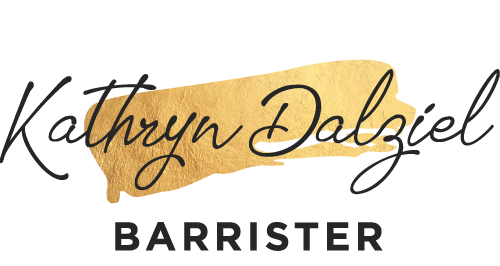Covid-19 Lockdown
Introduction
The Employment Relations Act talks about:
- building productive employment relationships
- acknowledging and addressing the inherent inequality of power in employment relationships
- good faith
- trust and confidence
Especially at a time like this, we need productive employment relationships and we need leadership and responsibility from employers.
Good faith relationships are responsive and honest; and trust and confidence are built through empathy and kindness. Everyone should try and be kind and supportive of each other. We all need time to adjust.
Stress and Distress
Whether you’re an employer or employee, remember that at times of change, unusual stress, and trauma, different personality types have different natural responses. Try not to judge yourself or others.
Employers: please look after you. In the words of Air NZ’s safety video, you want to make sure your oxygen mask is in place before you help your staff. You want to be calm, measured and fair.
Keep well informed and share good information: see below for a list of websites for information.
Listen to your team and be kind. That can be hard if people are not being kind back. Model your behavior expectations.
Can you help staff? EG: organise access to employee assistance support such as counselling? offer to contribute to any existing support they receive from their own health professionals? How about online exercise classes or online team meetings?
Employees: please look after you and get your oxygen mask in place. Talk to your employer if you need time to settle yourself, your families, and whanau. Remember your employer is trying to keep the business afloat and keep jobs going and is personally stressed as well: be kind and listen to them. Look for constructive ways to help your employer and the business.
Health and safety
Health and Safety in Employment is still vital, lockdown or not. Everyone should be safe from harm while they are working, even if they are working from home. Look at environment, ergonomics, hours of work, workplace stress. Do a health and safety assessment for home worksites. Talk with staff about risks.
The Business
Is business dropping away and/or staff in shut down? Time to look at the business! Directors must do this as part of their job (see the Companies Act 1993) and businesses have to do this when applying for staff subsidies from the government. Talk to your accountant and look at things like:
- Profit and loss
- Cashflow
- Assets
- Business borrowing
- Rent holidays/reduction of rent under lease
- Other savings: eg hold on contracts; force majeur clauses
Remember the solvency test:
- Can the company pay its debts as they become due in the normal course of business; and
- Is the value of the company’s assets is greater than the value of its liabilities, including contingent liabilities?
In Germany, they have relaxed rules around trading insolvently due to COVID-19. We have not seen that in NZ as at the time of writing this – it would be good to have this cleared up for NZ business although it is hopeful the NZ Courts will exercise discretion re company liquidations if companies need time to recover due to COVID-19.
Update 14 April 2020: while we are waiting to see the final legislation, the NZ Government is making temporary changes to the Companies Act to relieve directors of some of their insolvency duties if they are acting in good faith to manage liquidity problems due to the COVID-19 crisis. There will also be the ability to place existing debts into hibernation until the company is able to start trading again.
Wages and Salary
The starting point is that if an employee is ready, willing and able to work then they should be paid. But what if the employer cannot provide access to the business or the business has suddenly dropped away for a period of time?
- Check to see if the employment agreement has a force majeur/business interruption clause. If so, there is an agreement about what can be done.
- Employers and Employees should talk about ways the business can remain solvent during this time to avoid business liquidation or restructuring and redundancies:
- Has the employer explored all ways possible to keep staff paid eg borrowing, business interruption insurance claim (if applicable), government subsidies?
- What work can an employee do at the moment: any online training? Contacting customers? Tidying electronic files? Marketing plans once the shutdown lifts? Anything else?
- Can parties reach agreement over use of holiday leave…
Holiday Leave?
There are 2 types of holiday leave: earned holiday leave and accrued holiday leave. Earned holiday leave is leave that employees “earn” after a completed year of service: the legal minimum being 4 weeks. It can build up over several completed years of service. Accrued holiday leave is an accounting exercise to budget for leave that will be earned at the end of the current year of service and to calculate leave if employment is terminated during the year before leave becomes “earned”.
Earned leave is easy to deal with – the employer should have enough cash to pay this out otherwise the business is technically insolvent. However, an employer might elect to save paying out earned leave for a time when employees can take real holidays for rest and recreation at an agreed time. Employees do not have a right to demand that holiday leave is paid out now just as employers cannot demand that employees take annual leave now unless they have consulted with staff and given them 14 days’ notice of the leave (see below).
Accrued holiday leave or leave in advance are things an employer and employee can negotiate about but there is no legal right to accrued holiday leave unless the employee’s employment is terminated.
So:
- Use holiday leave while away from work only with written consent of both parties; and
- In accordance with terms of employment agreement; or
- Pursuant to a lawful direction under s19 Holidays Act 2003 (no less than 14 days notice) if:
- the parties are unable to reach agreement as to when the employee will take their annual holidays; or
- a closedown period applies
Pay reductions/unpaid leave
- if someone is working, they should be paid in accordance with their employment agreement.
- businesses should avoid reducing any payments to staff for hours worked as technically, it is an act of insolvency if the business cannot pay staff the agreed rate.
- If staff are not working, then pay reductions and/or use of unpaid leave may assist the business in avoiding insolvency. Businesses should make sure they have looked at all ways of keeping the business afloat (talk to banks, reduce costs, apply for government subsidies) before raising pay reductions and unpaid leave with staff.
- use pay reductions/unpaid leave if there is high risk of the business becoming insolvent, but the employer and the staff believe the situation can be salvaged once shutdown has lifted
- any agreement to a pay reduction or unpaid leave should be in writing
- NB: holiday leave continues to accrue during unpaid leave but its value decreases after first week
Government Relief Package
Leave payment: this was to assist people who needed to self-isolate, recover from COVID-19, or care for someone recovering from COVID-19. If you have not put in an application for this prior to 3.00pm, 27 March 2020: it is no longer available.
Wage subsidies: this has been updated:
Eligibility
- The wage subsidy is available to a business (not a government organisation)
- The business must be an employer with employees (to be named in the application)
- The business must have experienced a 30% decline (or more) in actual or predicted revenue over the period of a month when compared to the same month last year, or a reasonably equivalent month for a business operating less than a year, and that revenue loss is attributable to the COVID-19 outbreak
- The business must have taken active steps to mitigate the impact of COVID-19 on business activities (including but not limited to engaging with bank, drawing on cash reserves as appropriate, making an insurance claim)
- The business must not be currently receiving the COVID-19 Wage Subsidy or COVID-19 Leave Subsidy in respect of any of the employees named in application.
Obligations
- The business agrees:
- that the granting of application and receipt of the subsidy does not override existing obligations under the Employment Relations Act 2000
- to not make any changes to obligations under any employment agreement, including rates of pay, hours of work and leave entitlement, without the written agreement of the relevant employee;
- that employees named in your application are to remain as employees for the period of the subsidy
- that there will be no unlawful compulsion to use leave entitlements for the period of the subsidy (must be consultation and notice – see above)
- that the subsidy will be used for meeting wages and salary by employer
- to use best endeavours to pay at least 80 per cent of each named employee’s ordinary wages or salary; and pay at least the full amount of the subsidy to the employee (unless the employee’s ordinary wage/salary is below that amount)
Restructuring
These are hard times and one of the biggest decisions facing many employers is shutting the business down or restructuring the business.
If as an employer you are having to look at restructuring workforce and redundancies, remember there should be:
- Fair consultation including providing relevant information to staff
- Fair and genuine consideration of responses
- Fairness in respect of roles/staff who are to be made redundant eg last on/first off or a fair contestable process for a role
- Support to staff during this time: eg time off for job seeking, recruitment support and advice, counselling
Check your employment agreements for agreed redundancy processes and payment of compensation (if any).
Privacy
The guidelines under the Privacy Act 1993 still apply. See the Privacy Commissioner’s website for general information, information for employers/employees, information for hospitality business and event organisers, information for landlords and tenants, and information for healthcare professionals
Resources
https://workandincome.govt.nz/products/a-z-benefits/covid-19-support.html#null
https://www.business.govt.nz/news/coronavirus-information-for-businesses/
https://workandincome.govt.nz/employers/redundancy-support/index.html
https://www.employment.govt.nz/about/news-and-updates/workplace-response-coronavirus-covid-19/
https://www.privacy.org.nz/further-resources/privacy-and-covid-19/

